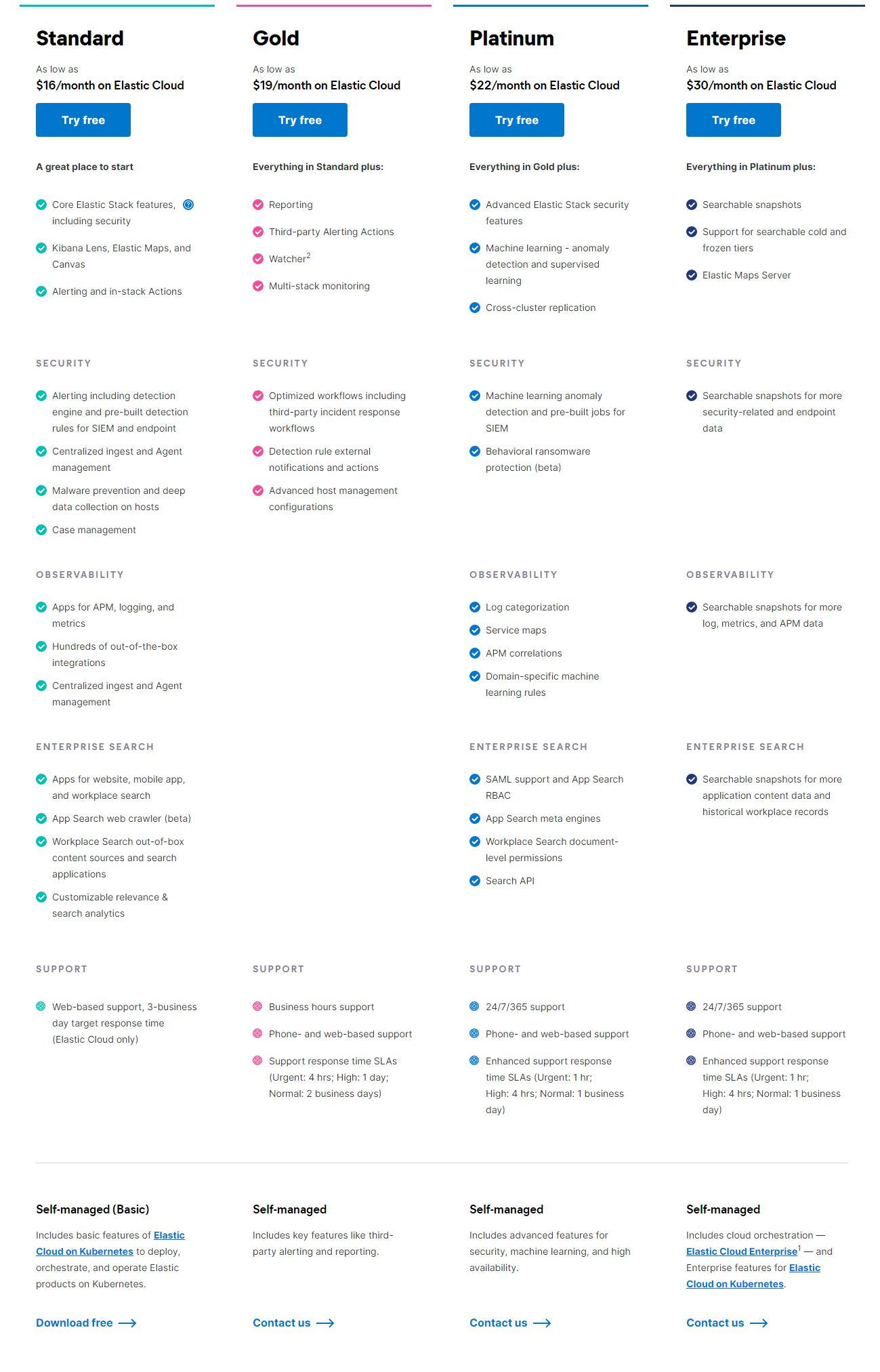This Elastic pricing section is effective for several reasons:
- Clear Tiered Structure and Targeting:
- Distinct Tiers: The “Standard,” “Gold,” “Platinum,” and “Enterprise” tiers are clearly defined and visually separated, making it easy to compare options.
- Target Audience Progression: The tiers are structured in a way that suggests a progression based on user needs and business size, from basic to advanced.
- Transparent Pricing:
- “As low as” Pricing: While not exact, the “As low as” pricing provides a clear starting point for cost estimation.
- Elastic Cloud Specific Pricing: The focus on “Elastic Cloud” pricing indicates that this is a cloud-hosted solution, clarifying the pricing context.
- Free Trials: The “Try free” buttons for each tier encourage users to experience the service before committing.
- Emphasis on Feature Differentiation:
- Feature Lists: Detailed feature lists for each tier allow users to easily compare functionalities and understand the added value of higher-tier plans.
- Categorized Features: Features are grouped into categories like “SECURITY,” “OBSERVABILITY,” “ENTERPRISE SEARCH,” and “SUPPORT,” making it easier to navigate and compare.
- “Everything in [Previous Tier] plus…” Structure: This clearly indicates the progression of features and benefits across the tiers.
- Strategic Use of Calls to Action:
- “Try free” and “Contact us” Buttons: Clear and prominent buttons encourage users to take action based on their needs.
- “Download free” Link: The “Download free” link for the “Self-managed (Basic)” option provides a path for users interested in self-hosting.
- Visual Clarity and Organization:
- Clean Layout: The layout is clean and organized, making it easy to read and understand the information.
- Consistent Formatting: Consistent formatting across tiers enhances readability and makes comparisons easier.
- Focus on Core Value:
- Elastic Stack: The platform focuses on the Elastic Stack, highlighting the core value proposition of search, analytics, and data processing.
- Support Level Differentiation:
- Support SLAs: The clear indication of support response time SLAs for each tier helps users understand the level of support they will receive.
- Deployment Options:
- Elastic Cloud vs. Self-Managed: The clear distinction between Elastic Cloud and self-managed options provides flexibility for different deployment needs.



